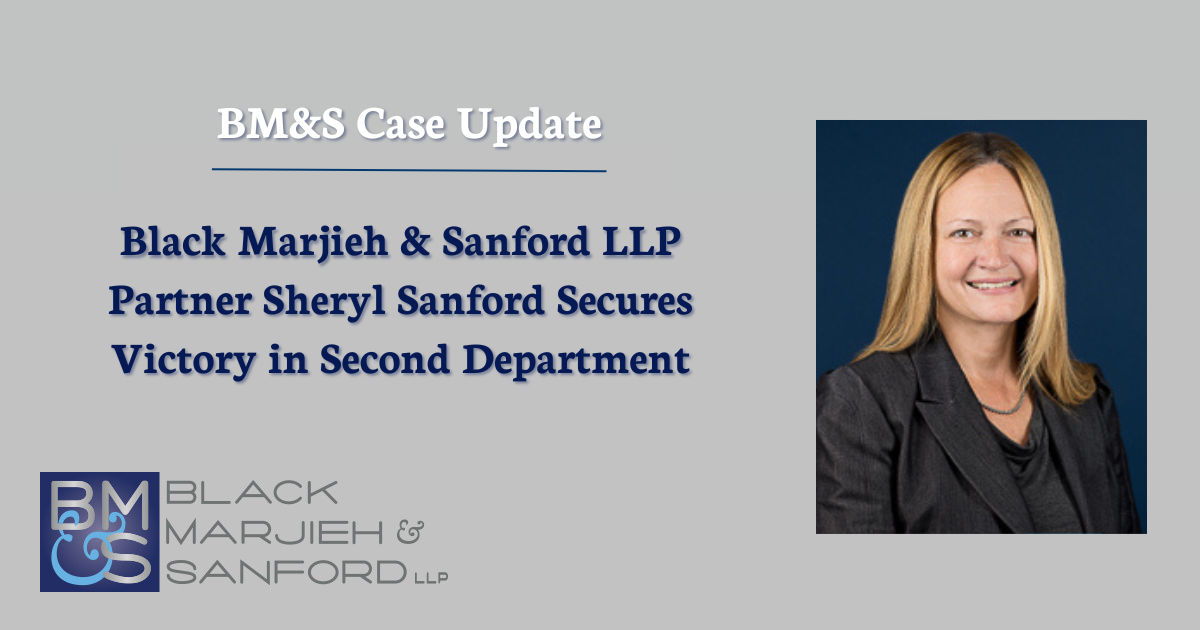Black Marjieh & Sanford LLP Partner Sheryl Sanford Secures Victory in Second Department

Partner Sheryl Sanford successfully secured a win in the Second Department, affirming the Supreme Court’s earlier decision to grant our client’s motion for summary judgment, thereby dismissing the plaintiff’s lawsuit.
In Cipriano v. East End Disability Associates, Inc., plaintiff Cipriano, acting as guardian for an individual with both physical and mental disabilities, sought to hold BMS’s client accountable for an accident involving her non-verbal son, who resided in a group care home for adults with developmental disabilities. It was alleged that the facility was liable because the plaintiff sustained a fracture of the right hip (right femoral neck) in an unwitnessed incident that occurred while he resided at the group care facility.
Plaintiff claimed multiple violations of the New York State Social Services Law, Article 16, along with allegations of negligent hiring, inadequate supervision, and nursing malpractice. The lower court dismissed the case, agreeing that the defendants submitted compelling evidence showing that, despite the resident’s disabilities, he was able to ambulate independently and was under general supervision—indicating that he did not require one-on-one, constant supervision in the group care home setting. Further, there was no evidence to support any deviation from the standard of care owed to the plaintiff. Additionally, governmental agencies had not found any statutory violations related to the facility’s practices. There was also no evidence of ill-trained or inadequately equipped staff interacting with the plaintiff on the night of the alleged incident. The general medical malpractice claims raised by the plaintiff were also unfounded, as the group care facility is not a skilled nursing facility and does not provide the level of care required to support such claims.
Plaintiff appealed the dismissal, and the Second Department upheld the lower court’s decision, confirming that the plaintiff failed to raise a triable issue of fact. The court found the plaintiff’s claims were speculative and conclusory, with no evidence provided to support the applicability of the doctrine of res ipsa loquitur. The court concluded that the remainder of plaintiff’s contentions, including arguments to invoke the Noseworthy doctrine, were meritless.
